New Partnership to help the Rusty Patched Bumble Bee
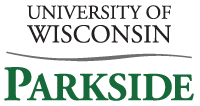

For immediate release
SOMERS – Standing together on the Wayne E. Dannehl National Cross Country Course, one of the most iconic cross country venues in the nation, representatives from the University of Wisconsin-Parkside and the Root-Pike Watershed Initiative Network (WIN) announced a new partnership: the Pollinator Patch Program. The goal of the program is to develop a land restoration plan and create more habitat for a bumble bee – the Rusty Patched Bumble Bee, to be exact.
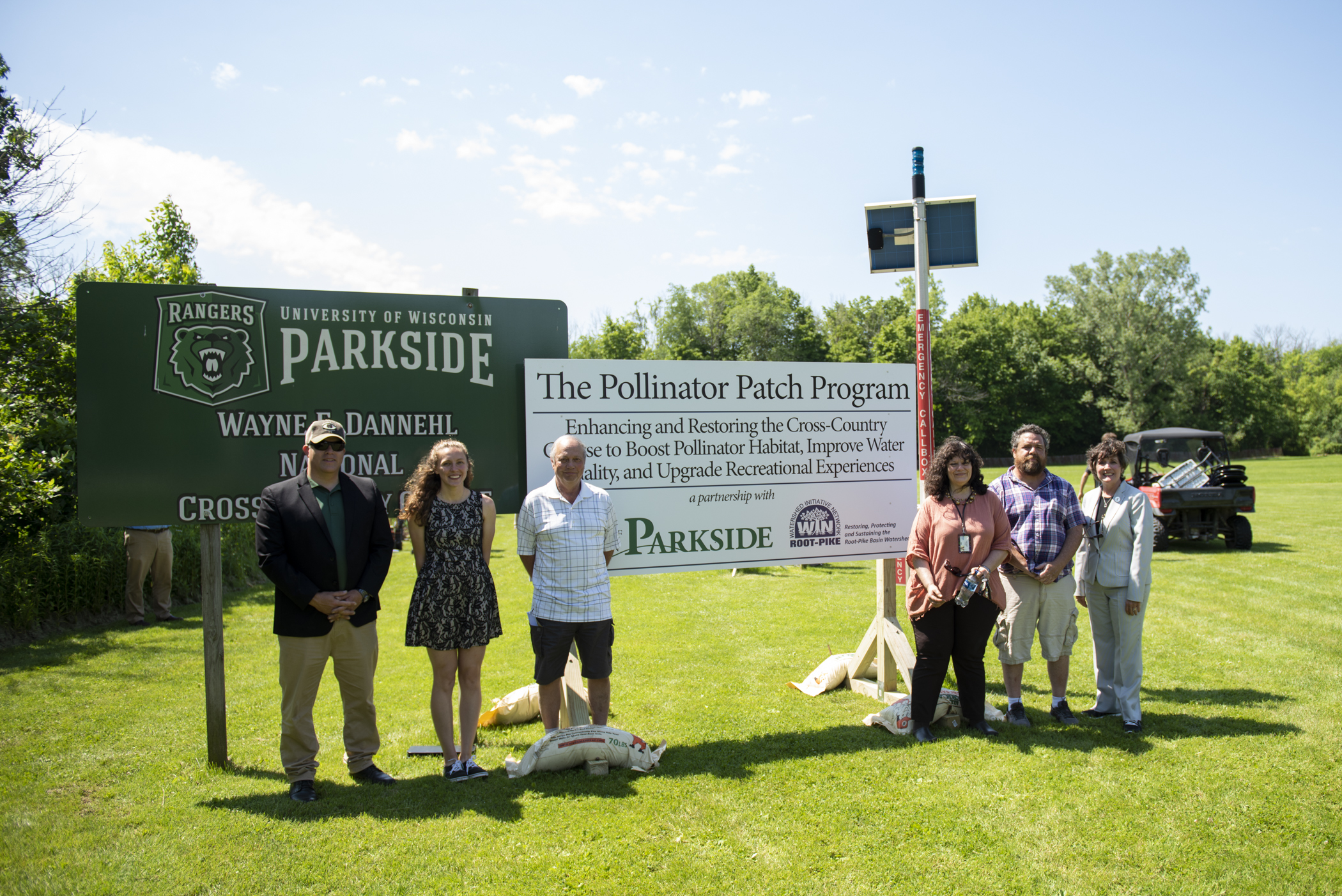
The federally endangered Rusty Patched Bumble Bee (Bombus affinis) is attracting attention locally as the Midwest is the only territory where the once wide-ranging bumble bee has remnant populations. The stressors to bumble bees in general, and the Rusty Patched in particular, include habitat loss, land disturbance, native vegetation loss, herbicide and pesticide use, disease, and possibly climate change.
“UW-Parkside is the hub of the Pike River watershed and now at the center of valuable habitat for threatened pollinators and other rare species,” said David Giordano, executive director of Root-Pike WIN. “Uniquely, when these habitats are enhanced and restored, they also reduce storm-water runoff, boost water quality and create more opportunities for recreational activities. We are thrilled to launch the Pollinator Patch Program with UW-Parkside.”
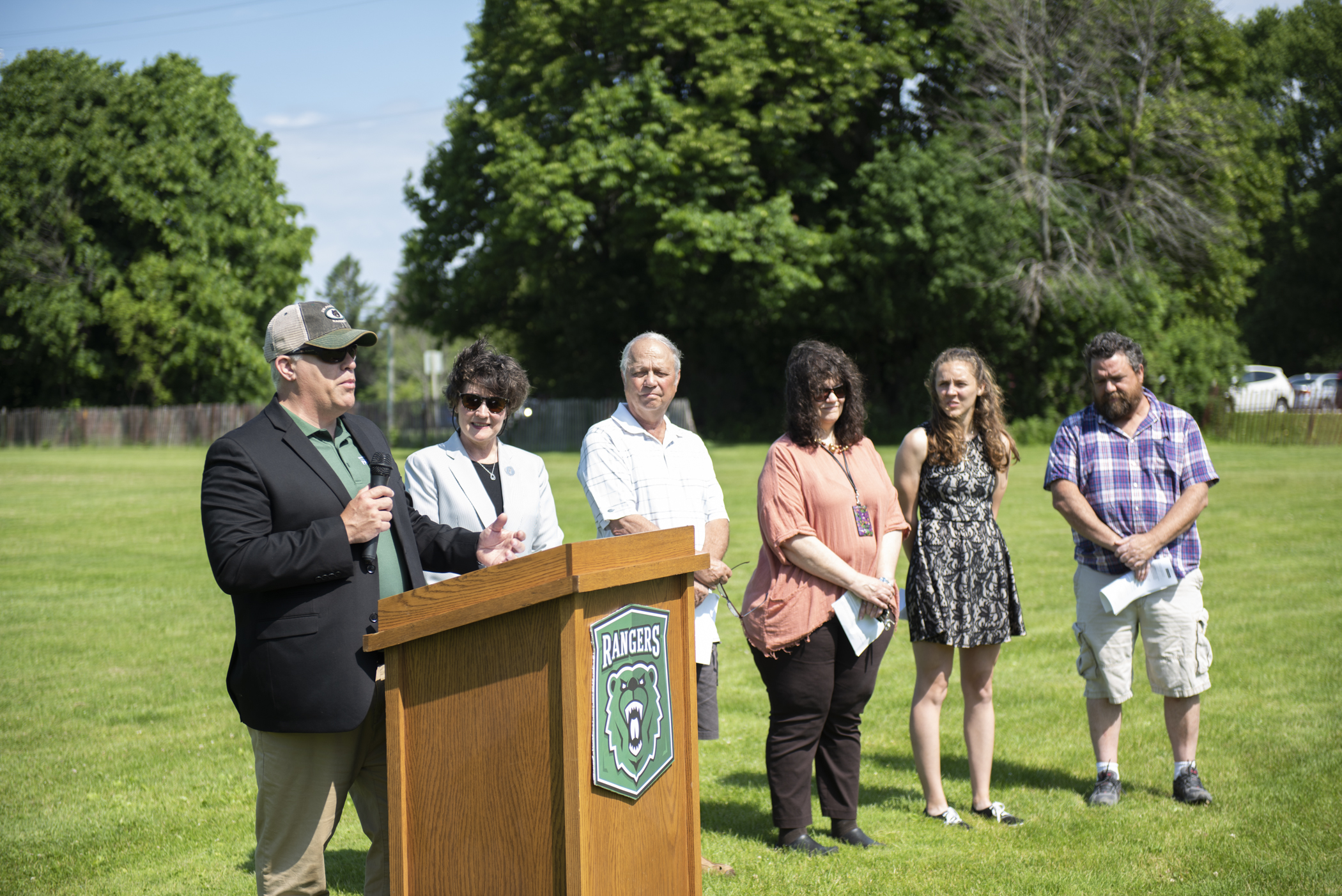
UW-Parkside Associate Professor of Biological Science Dr. David Rogers pointed to the expertise of UW-Parkside faculty and student involvement with developing the Pollinator Patch Program. Several UW-Parkside faculty are very familiar with the UW-Parkside landscape and have experience in pollinator ecology and ecological restoration. “UW-Parkside faculty and students will provide program partners, including Thompson and Associates Wetland Services, with maps and data we have collected over the years and work directly with them to develop the Pollinator Patch Program,” Rogers said.
The Rusty Patched Bumble Bee is a ground nester. Plowing, mowing, removal of little patches of bare ground, construction and other soil disturbances can destroy an active underground burrow or the overwintering queen bumble bee. The Rusty Patched Bumble Bee may also be the canary in the mine, illuminating the ecological importance of pollinators, and the consequences of their decline to humans, agriculture, and the ecosystem.
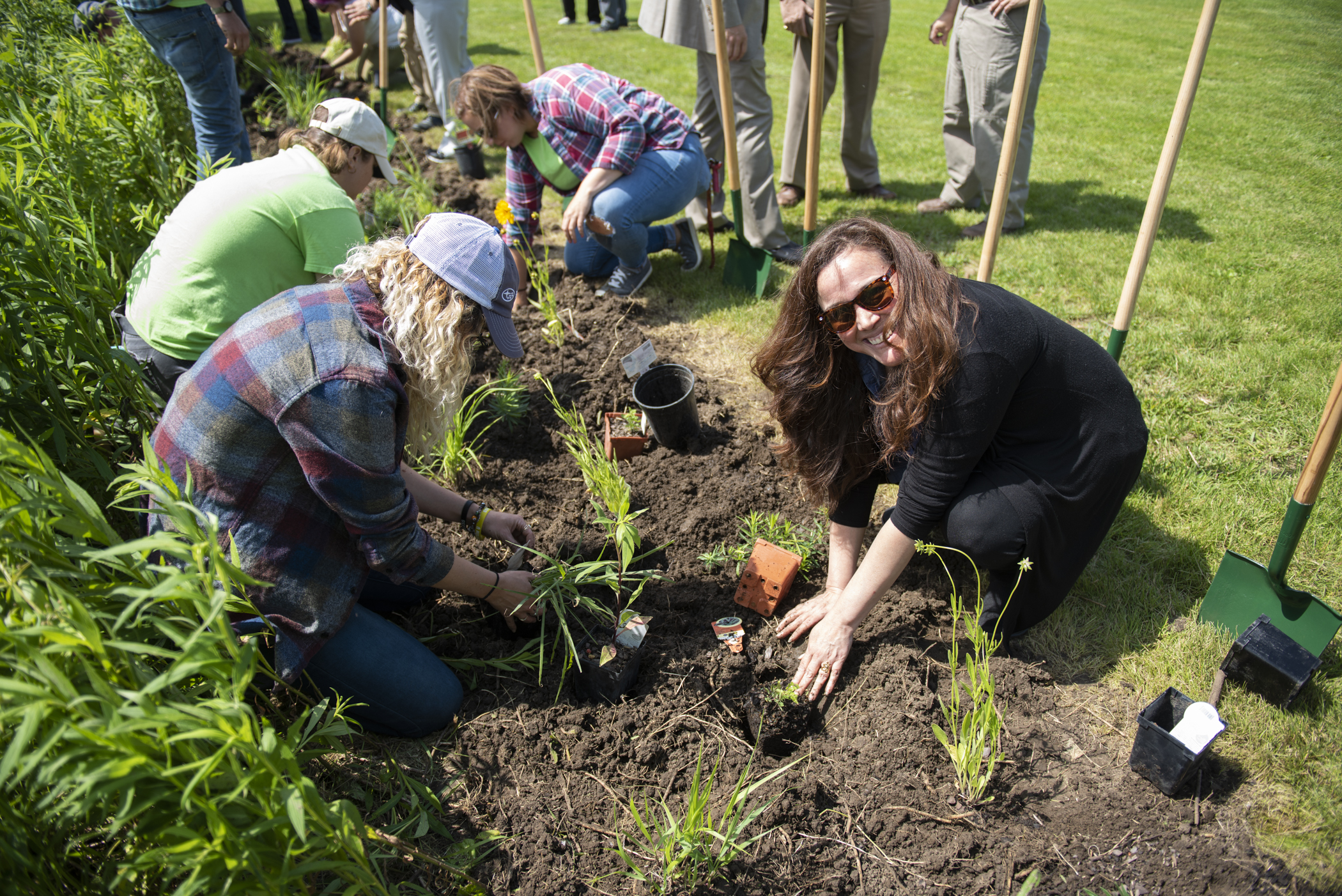
“The Pollinator Patch Program is a great opportunity to further promote UW-Parkside programs in biology and environmental sciences,” Rogers said. “The campus is a great outdoor lab space. The Pollinator Patch Program will enhance the utility of our academic programs by increasing the diversity and quality of natural habitats so that faculty can better teach students the practical field skills they will need to contribute in their professional careers.”
UW-Parkside is in a unique position to rehabilitate and enhance the approximately 211 acres of forest and open space between county highways JR and E, and state Highway 31. These areas provide appealing native vegetation and prime habitat for wildlife, including the Rusty Patched Bumble Bee and other pollinators.
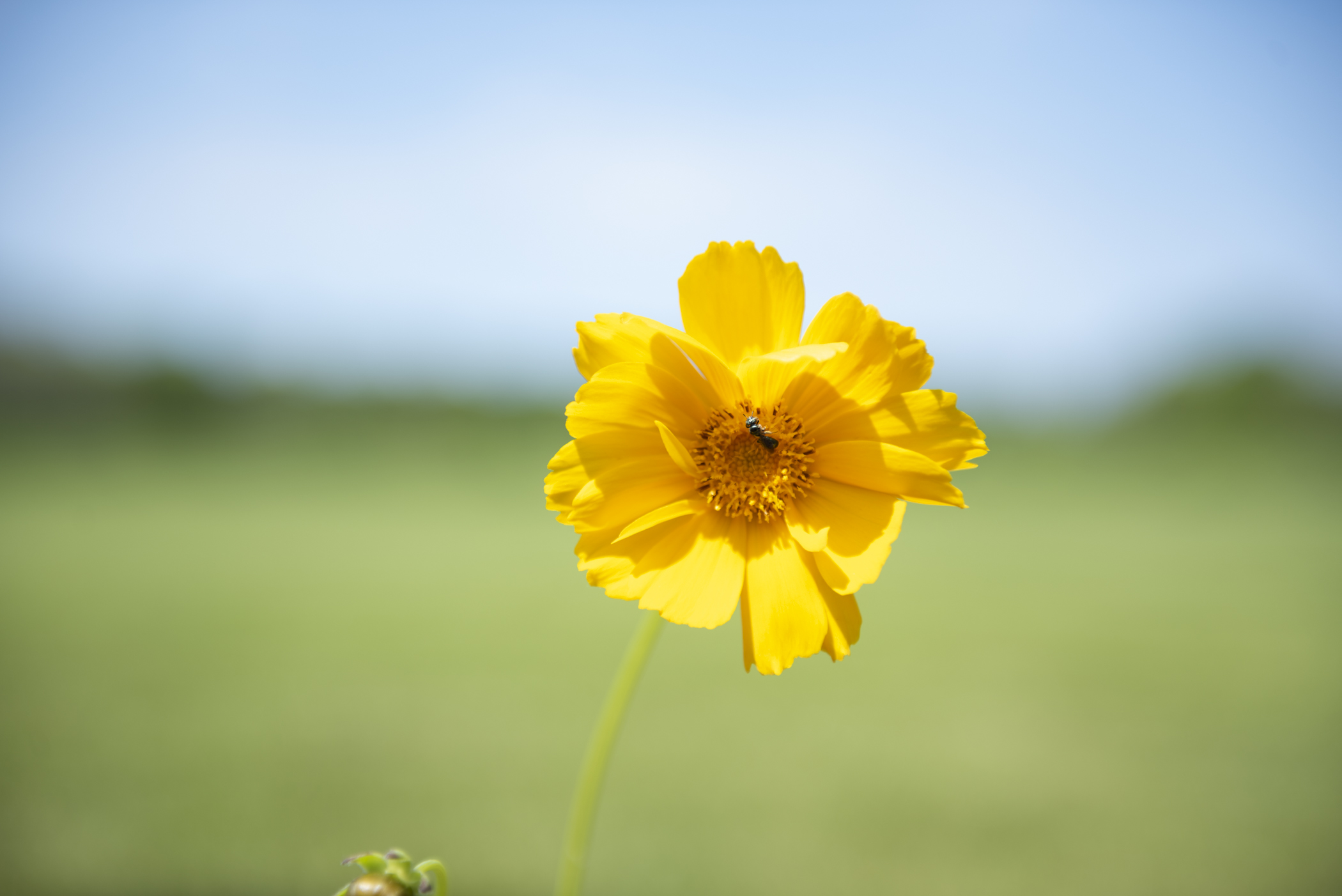
“UW-Parkside was founded by the community for the community,” said UW-Parkside Chancellor Debbie Ford. “During our half century of serving southeastern Wisconsin, faculty, students, staff and alumni have been excellent stewards of the natural resources entrusted to our learning community. Building habit for the Rusty Patched Bumble Bee will be an exciting initiative.”
UW-Parkside faculty working in partnership with Thompson and Associates will help identify native flowers and vegetation most critical for success of the Rusty Patched Bumble Bee. The open areas adjacent to the cross country trail could be restored to food sources for the Rusty Patched Bumble Bee from spring through late fall.
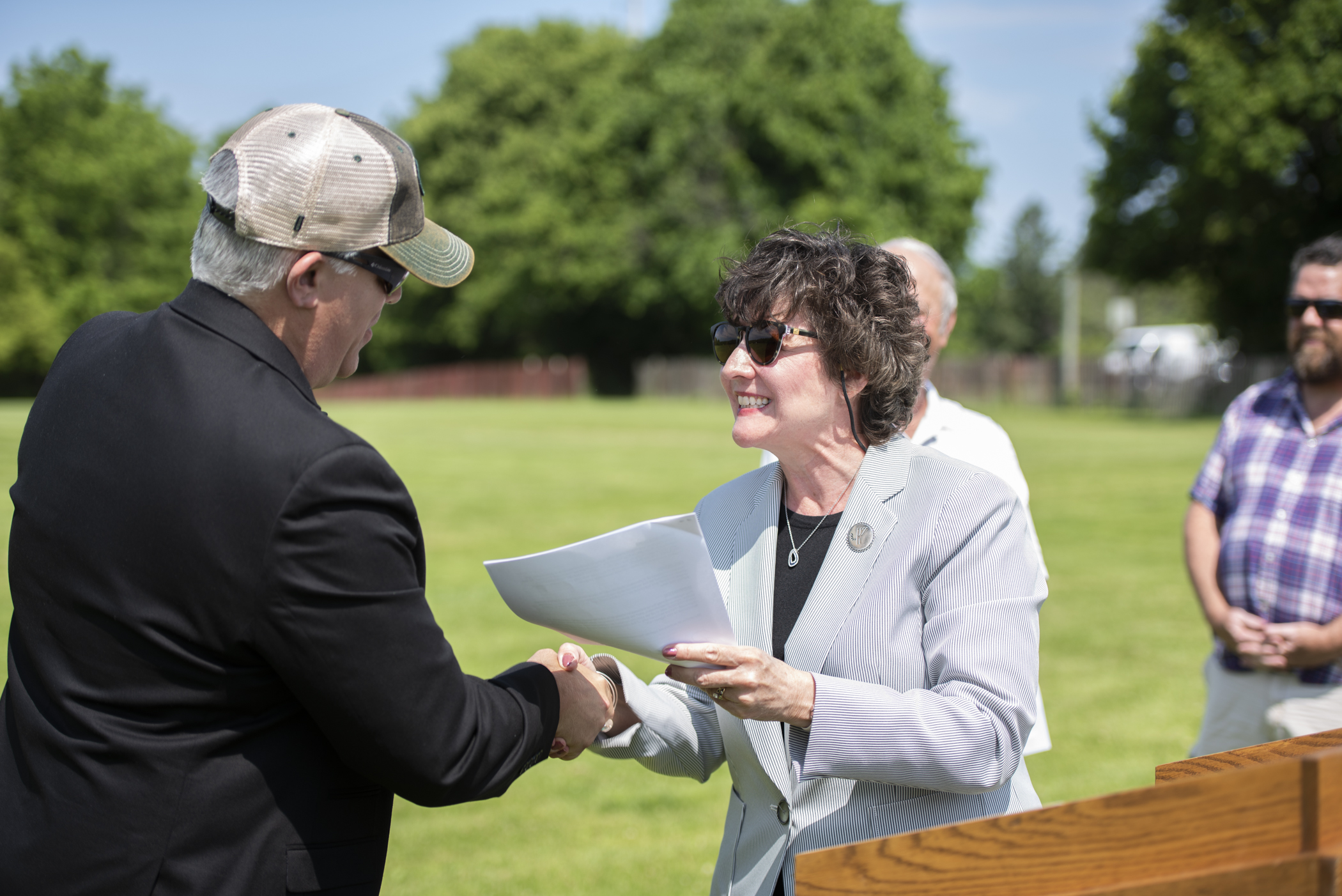
“As with any successful project,” Giordano said, “collaboration will be key in creating the Pollinator Patch Program to help bring the Rusty Patched Bumble Bee back.”
###
Media contacts:
Dave Giordano
Root-Pike WIN
Executive Director
262-898-2055
dave@rootpikewin.org
John Mielke
University of Wisconsin-Parkside
Executive Director Communications
Office 262-595-3226; Cell 262-902-9355
mielkej@uwp.edu
